
Filter News
Area of Research
- (-) Biology and Environment (47)
- (-) Clean Energy (133)
- (-) National Security (36)
- Advanced Manufacturing (4)
- Biological Systems (1)
- Building Technologies (1)
- Climate and Environmental Systems (2)
- Computational Biology (2)
- Computational Engineering (3)
- Computer Science (16)
- Electricity and Smart Grid (3)
- Functional Materials for Energy (1)
- Fusion and Fission (8)
- Fusion Energy (2)
- Isotopes (6)
- Materials (71)
- Materials for Computing (15)
- Mathematics (1)
- Neutron Science (108)
- Nuclear Science and Technology (8)
- Quantum information Science (6)
- Sensors and Controls (1)
- Supercomputing (122)
- Transportation Systems (2)
News Topics
- (-) Artificial Intelligence (26)
- (-) Biomedical (21)
- (-) Computer Science (56)
- (-) Grid (45)
- (-) Mercury (10)
- (-) Neutron Science (18)
- (-) Transportation (68)
- 3-D Printing/Advanced Manufacturing (82)
- Advanced Reactors (7)
- Big Data (20)
- Bioenergy (66)
- Biology (80)
- Biotechnology (16)
- Buildings (36)
- Chemical Sciences (18)
- Clean Water (19)
- Climate Change (61)
- Composites (19)
- Coronavirus (24)
- Critical Materials (9)
- Cybersecurity (25)
- Decarbonization (48)
- Energy Storage (73)
- Environment (138)
- Exascale Computing (6)
- Fossil Energy (2)
- Frontier (5)
- Fusion (3)
- High-Performance Computing (27)
- Hydropower (9)
- Isotopes (2)
- Machine Learning (24)
- Materials (40)
- Materials Science (32)
- Mathematics (5)
- Microelectronics (1)
- Microscopy (15)
- Molten Salt (1)
- Nanotechnology (12)
- National Security (37)
- Net Zero (5)
- Nuclear Energy (11)
- Partnerships (15)
- Physics (3)
- Polymers (12)
- Quantum Science (3)
- Renewable Energy (2)
- Security (15)
- Simulation (17)
- Space Exploration (3)
- Statistics (1)
- Summit (15)
- Sustainable Energy (93)
- Transformational Challenge Reactor (3)
Media Contacts
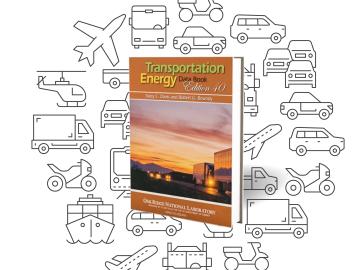
It’s been referenced in Popular Science and Newsweek, cited in the Economic Report of the President, and used by agencies to create countless federal regulations.
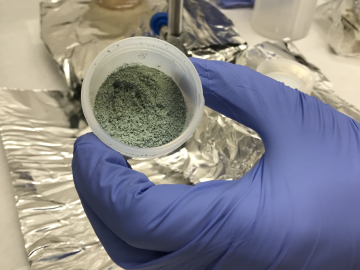
ORNL researchers used the nation’s fastest supercomputer to map the molecular vibrations of an important but little-studied uranium compound produced during the nuclear fuel cycle for results that could lead to a cleaner, safer world.

Oak Ridge National Laboratory researchers determined that for every 5 miles per hour that drivers travel over a 50-mph speed limit, fuel economy decreases by 7% and equates to paying an extra 28 cents per gallon at current.
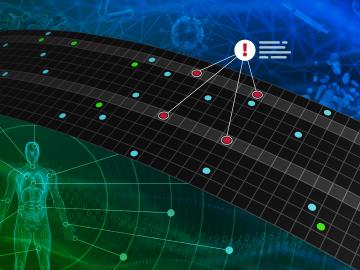
A team of researchers has developed a novel, machine learning–based technique to explore and identify relationships among medical concepts using electronic health record data across multiple healthcare providers.

Tackling the climate crisis and achieving an equitable clean energy future are among the biggest challenges of our time.
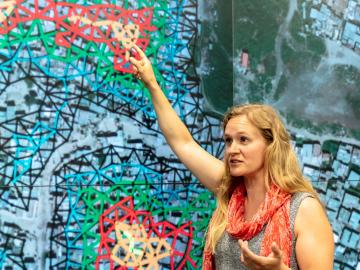
Unequal access to modern infrastructure is a feature of growing cities, according to a study published this week in the Proceedings of the National Academy of Sciences
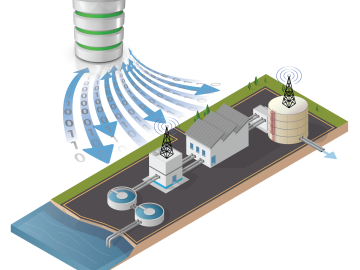
Oak Ridge National Laboratory scientists worked with the Colorado School of Mines and Baylor University to develop and test control methods for autonomous water treatment plants that use less energy and generate less waste.
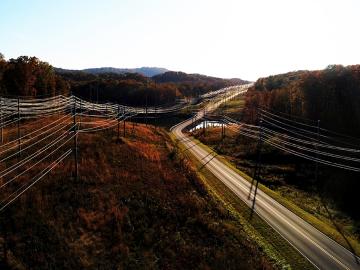
ORNL and the Tennessee Valley Authority, or TVA, are joining forces to advance decarbonization technologies from discovery through deployment through a new memorandum of understanding, or MOU.
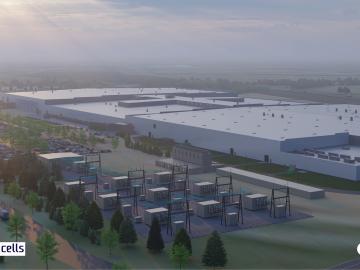
ORNL, TVA and TNECD were recognized by the Federal Laboratory Consortium for their impactful partnership that resulted in a record $2.3 billion investment by Ultium Cells, a General Motors and LG Energy Solution joint venture, to build a battery cell manufacturing plant in Spring Hill, Tennessee.
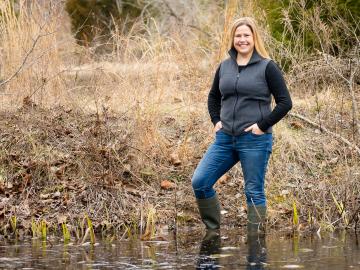
Spanning no less than three disciplines, Marie Kurz’s title — hydrogeochemist — already gives you a sense of the collaborative, interdisciplinary nature of her research at ORNL.


